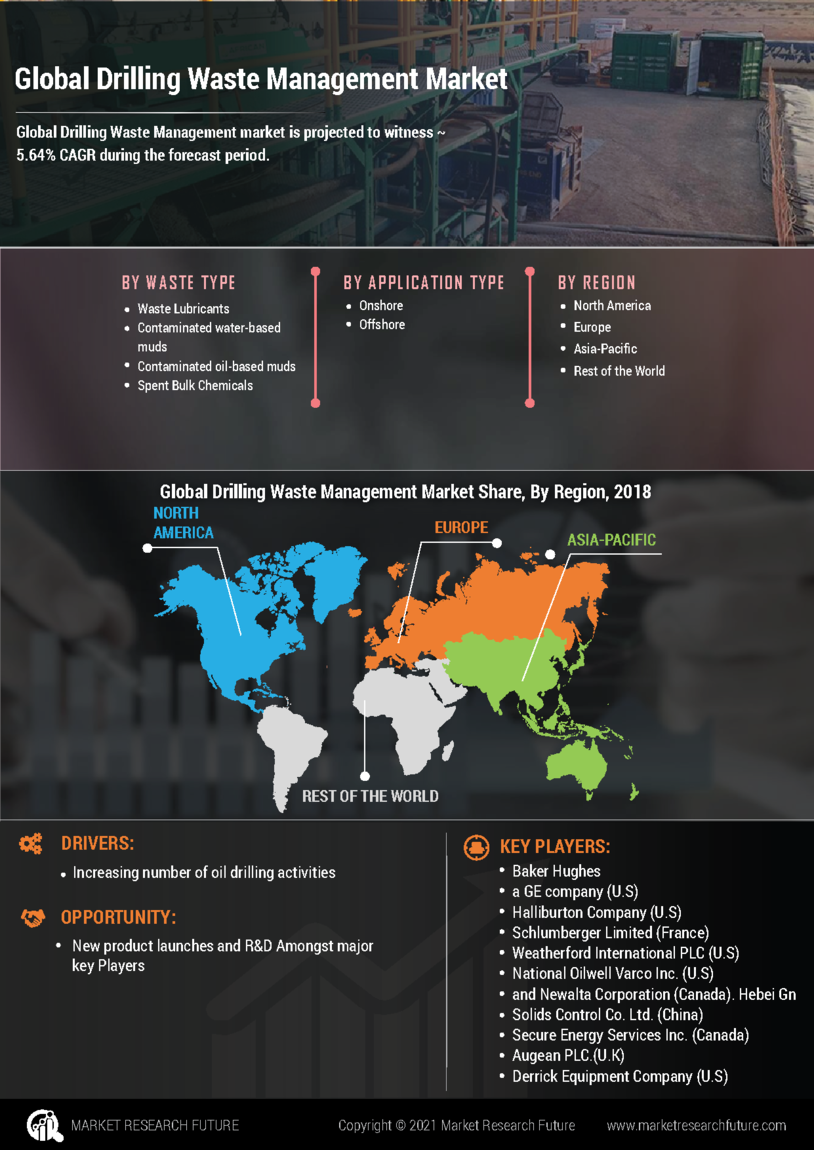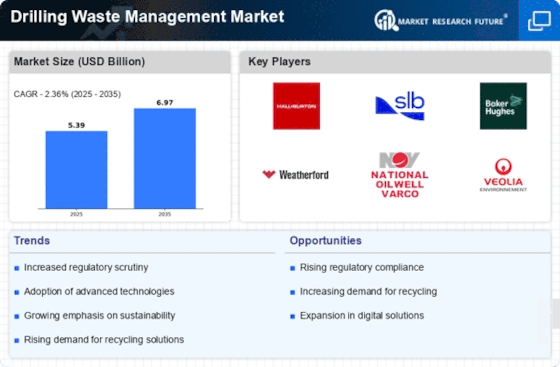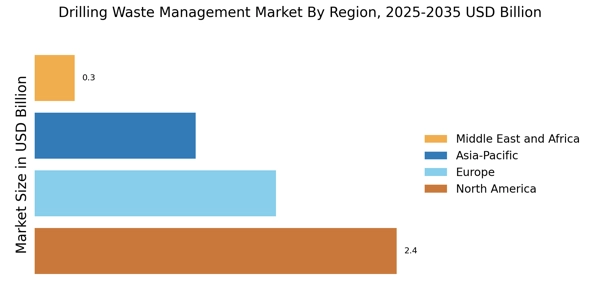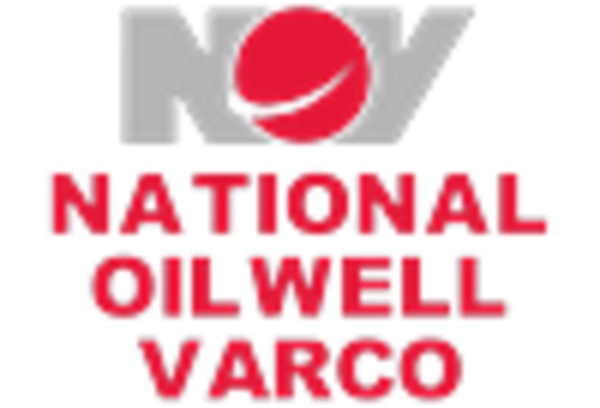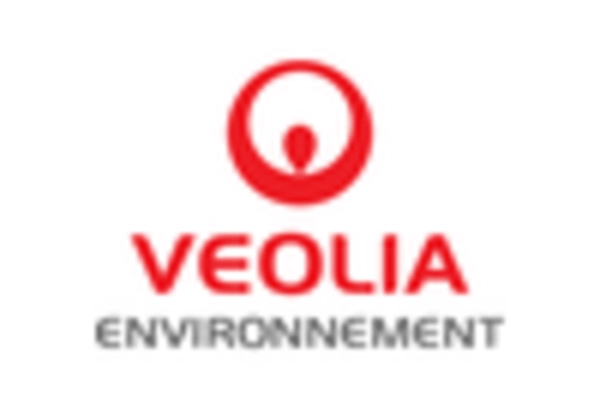Growing Environmental Awareness
The Drilling Waste Management Market is witnessing a growing awareness of environmental issues among stakeholders, including consumers, investors, and regulatory agencies. This heightened awareness is prompting drilling companies to adopt more sustainable waste management practices. As public scrutiny increases, companies are compelled to demonstrate their commitment to environmental stewardship. This trend is reflected in the rising demand for eco-friendly waste management solutions, which are expected to capture a larger share of the market. The industry's shift towards sustainability is likely to be supported by initiatives aimed at reducing carbon footprints and promoting responsible resource use. Consequently, the market may see a significant increase in investments in innovative waste management technologies that align with these environmental goals.
Stringent Regulatory Frameworks
The Drilling Waste Management Market is significantly influenced by stringent regulatory frameworks that govern waste disposal and environmental protection. Governments and regulatory bodies are increasingly enforcing laws that require drilling companies to manage waste responsibly. Compliance with these regulations is not only a legal obligation but also a critical factor in maintaining a company's reputation. The market is projected to grow as companies invest in compliant waste management solutions to avoid penalties and enhance their operational sustainability. For example, the implementation of the Resource Conservation and Recovery Act (RCRA) in various regions mandates proper waste handling, which drives demand for advanced waste management technologies. This regulatory pressure is likely to propel the market forward, as companies seek to align with evolving environmental standards.
Corporate Social Responsibility Initiatives
The Drilling Waste Management Market is increasingly influenced by corporate social responsibility (CSR) initiatives adopted by drilling companies. As stakeholders demand greater accountability and transparency, companies are recognizing the importance of sustainable waste management practices as part of their CSR strategies. This shift is leading to the development of comprehensive waste management programs that prioritize environmental protection and community engagement. Companies that actively promote their waste management efforts are likely to enhance their brand image and attract environmentally conscious investors. The integration of CSR into business operations is expected to drive demand for innovative waste management solutions, as companies strive to meet both regulatory requirements and societal expectations. This trend may result in a more competitive landscape within the drilling waste management sector.
Economic Growth and Increased Drilling Activities
The Drilling Waste Management Market is poised for growth due to economic expansion and increased drilling activities across various sectors, including oil and gas, mining, and geothermal energy. As economies recover and energy demands rise, drilling operations are expected to increase, leading to a corresponding rise in drilling waste generation. This trend necessitates effective waste management solutions to handle the anticipated increase in waste volumes. The market is projected to expand as companies seek to implement efficient waste management practices to mitigate environmental impacts and comply with regulations. Furthermore, the rise in unconventional drilling techniques, such as hydraulic fracturing, is likely to contribute to the growth of the drilling waste management sector, as these methods generate substantial waste that requires specialized handling.
Technological Innovations in Drilling Waste Management
The Drilling Waste Management Market is experiencing a surge in technological innovations that enhance waste treatment processes. Advanced technologies such as centrifuges, thermal desorption units, and bioremediation techniques are being increasingly adopted. These innovations not only improve the efficiency of waste management but also reduce the environmental footprint of drilling operations. For instance, the implementation of automated systems for monitoring waste can lead to significant cost savings and improved compliance with environmental regulations. As a result, companies are likely to invest in these technologies to optimize their operations and minimize waste disposal costs, which are projected to reach USD 10 billion by 2026. This trend indicates a shift towards more sustainable practices within the drilling sector.
